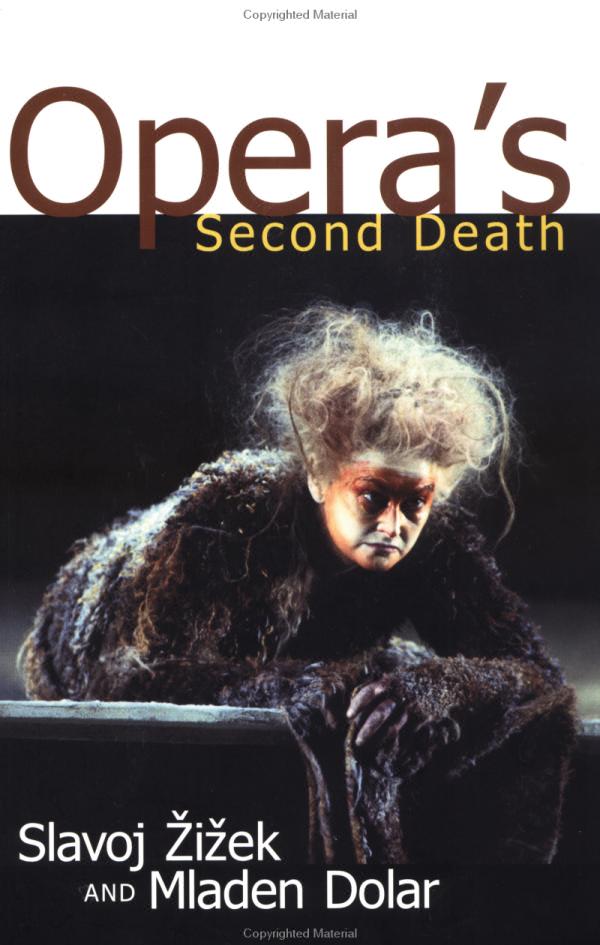Difference between revisions of "Opera's Second Death"
| Line 1: | Line 1: | ||
| − | [[ | + | [[Image:OperasSecondDeath.jpg |right|frame]] |
| − | |||
| − | |||
| − | |||
| − | |||
| − | |||
Žižek, S. and Dolar, M. (2002) Opera's Second Death, London and New | Žižek, S. and Dolar, M. (2002) Opera's Second Death, London and New | ||
| Line 20: | Line 15: | ||
with the expectation that each example will have to bear the weight | with the expectation that each example will have to bear the weight | ||
of a demanding Lacanian theorem. | of a demanding Lacanian theorem. | ||
| + | [[Category:Works]] | ||
| + | [[Category:Books]] | ||
| + | [[Category:Žižek]] | ||
| + | [[Category:Psychoanalysis]] | ||
Revision as of 05:17, 2 May 2006
Žižek, S. and Dolar, M. (2002) Opera's Second Death, London and New York: Routledge. If Hitchcock's films are the most common source of examples in Žižek's books, Wagner's operas probably run them a close second. Picking up on this exemplary obsession and expanding his analysis of it from Tarrying with the Negative, Žižek here devotes half a book to the subject - the other half being Dolar's discussion of Mozart's operas. What is slightly unusual about this book is the subtle change of emphasis where, instead of using Wagnerian opera as a means to explain Lacanian theory, Žižek is more intent here on using Lacanian theory to explain Wagnerian opera. This perhaps makes the book a more relaxing read than the standard Žižekian work, as the reader is no longer fraught with the expectation that each example will have to bear the weight of a demanding Lacanian theorem.
